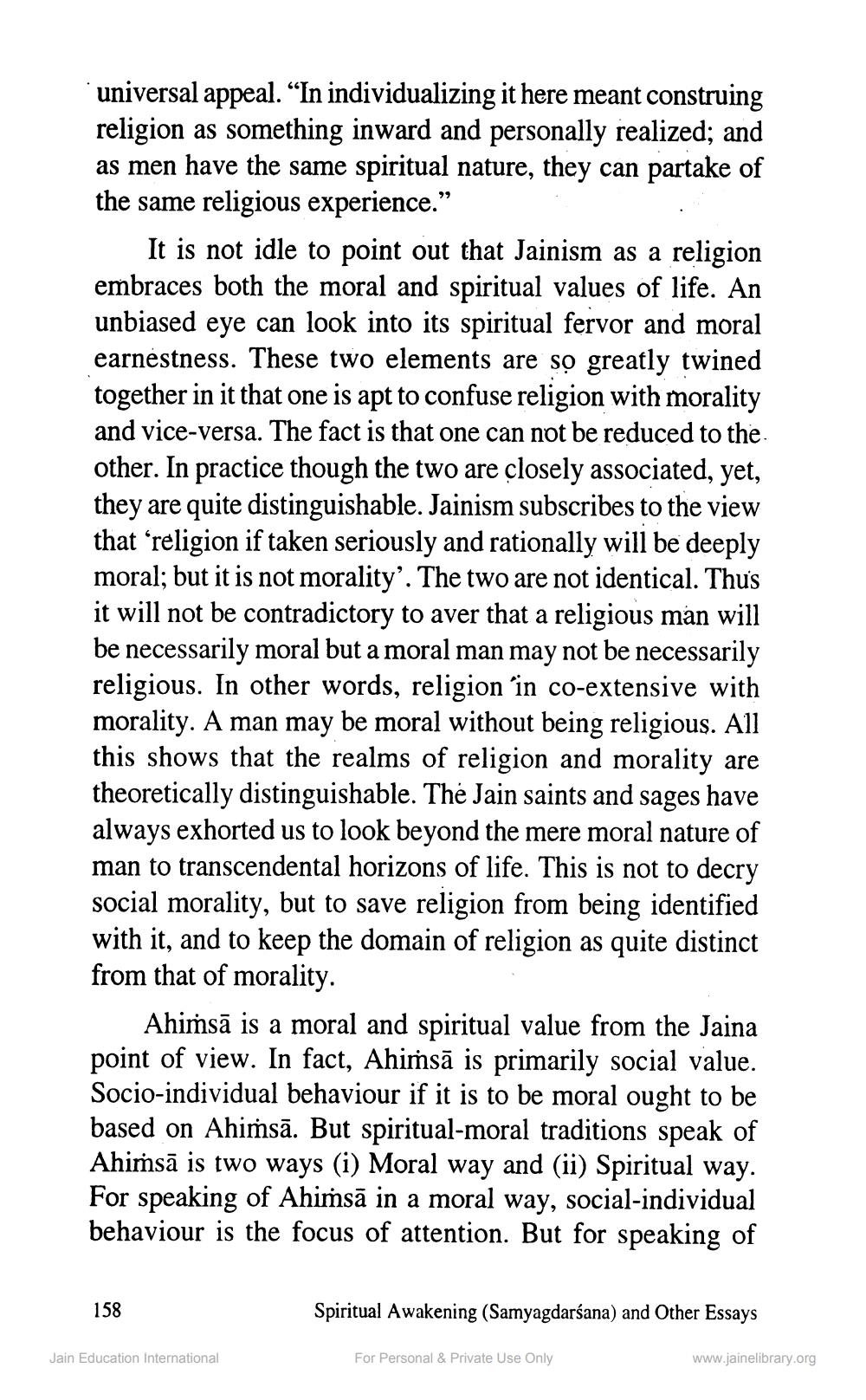________________
universal appeal. “In individualizing it here meant construing religion as something inward and personally realized; and as men have the same spiritual nature, they can partake of the same religious experience."
It is not idle point out that Jainism as a religion embraces both the moral and spiritual values of life. An unbiased eye can look into its spiritual fervor and moral earnestness. These two elements are so greatly twined together in it that one is apt to confuse religion with morality and vice-versa. The fact is that one can not be reduced to the other. In practice though the two are closely associated, yet, they are quite distinguishable. Jainism subscribes to the view that 'religion if taken seriously and rationally will be deeply moral; but it is not morality'. The two are not identical. Thus it will not be contradictory to aver that a religious man will be necessarily moral but a moral man may not be necessarily religious. In other words, religion 'in co-extensive with morality. A man may be moral without being religious. All this shows that the realms of religion and morality are theoretically distinguishable. The Jain saints and sages have always exhorted us to look beyond the mere moral nature of man to transcendental horizons of life. This is not to decry social morality, but to save religion from being identified with it, and to keep the domain of religion as quite distinct from that of morality.
Ahimsa is a moral and spiritual value from the Jaina point of view. In fact, Ahimsa is primarily social value. Socio-individual behaviour if it is to be moral ought to be based on Ahimsā. But spiritual-moral traditions speak of Ahimsa is two ways (i) Moral way and (ii) Spiritual way. For speaking of Ahiṁsā in a moral way, social-individual behaviour is the focus of attention. But for speaking of
158
Jain Education International
Spiritual Awakening (Samyagdarśana) and Other Essays
For Personal & Private Use Only
www.jainelibrary.org




